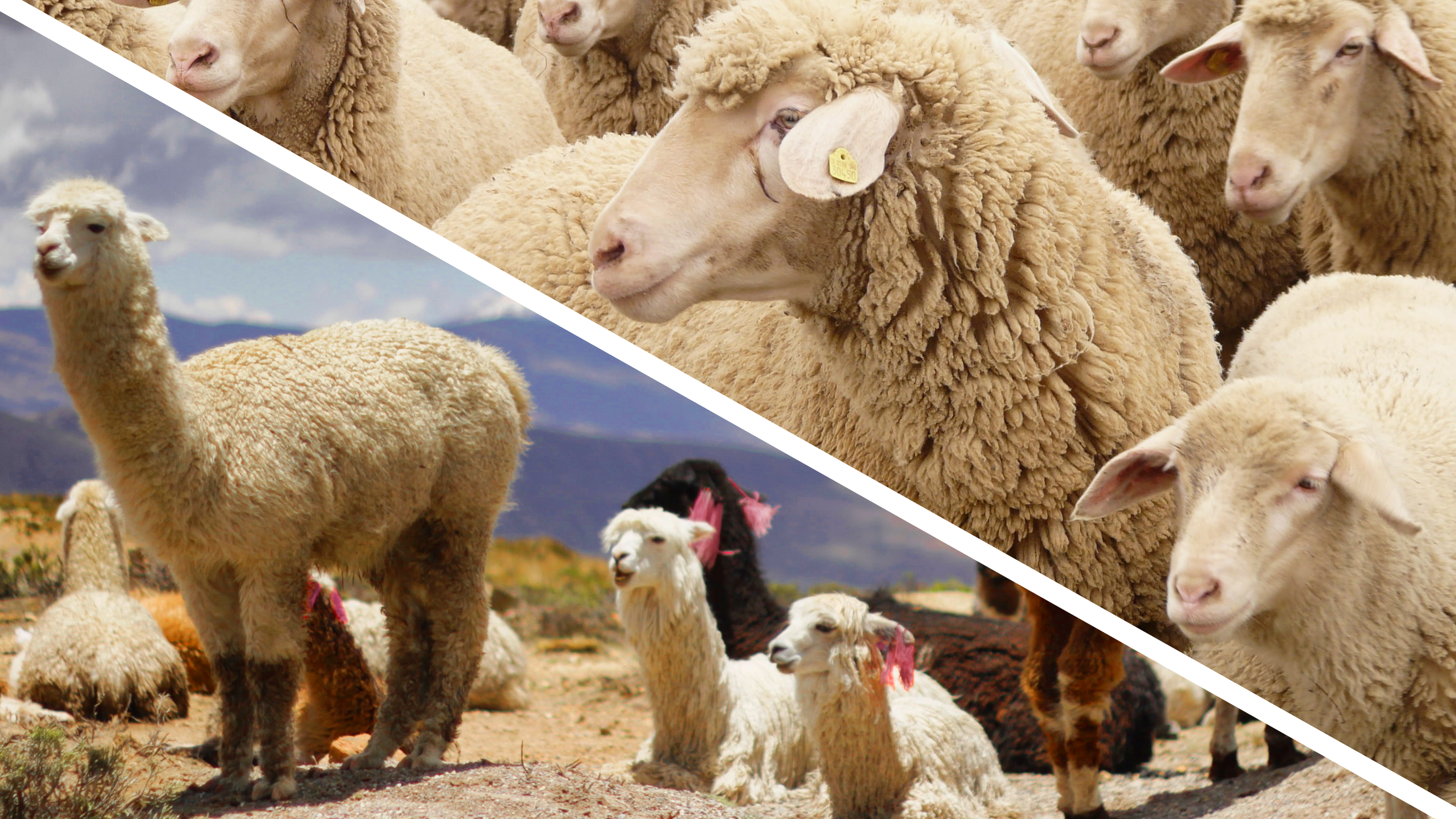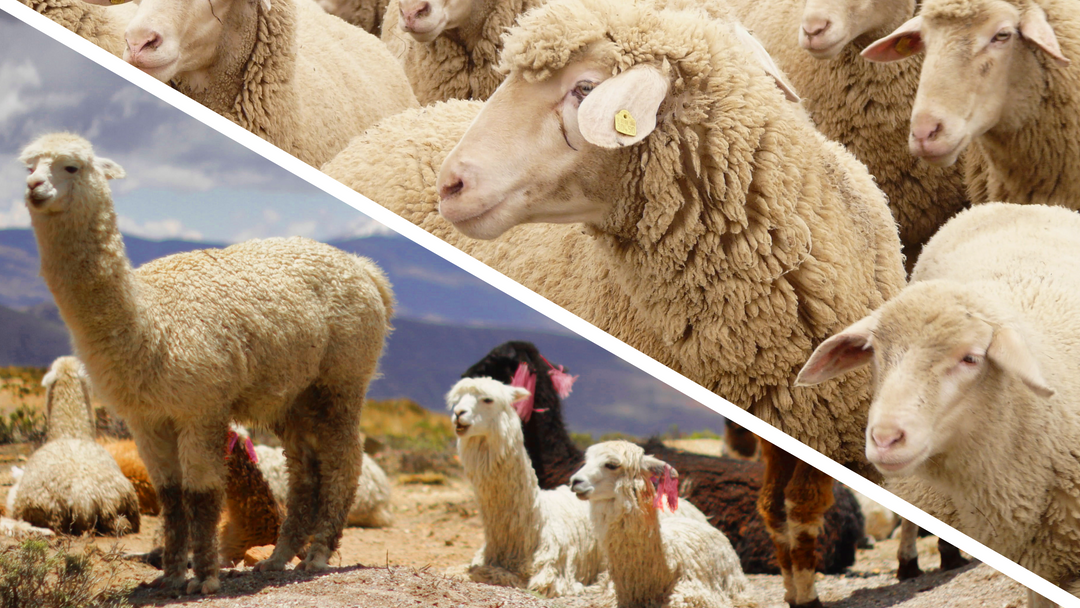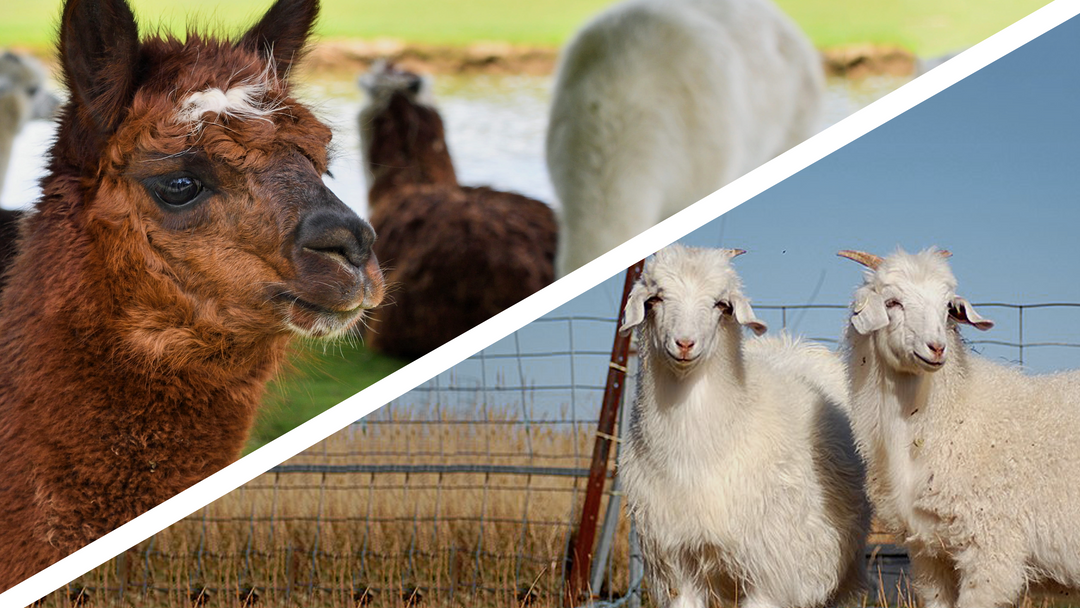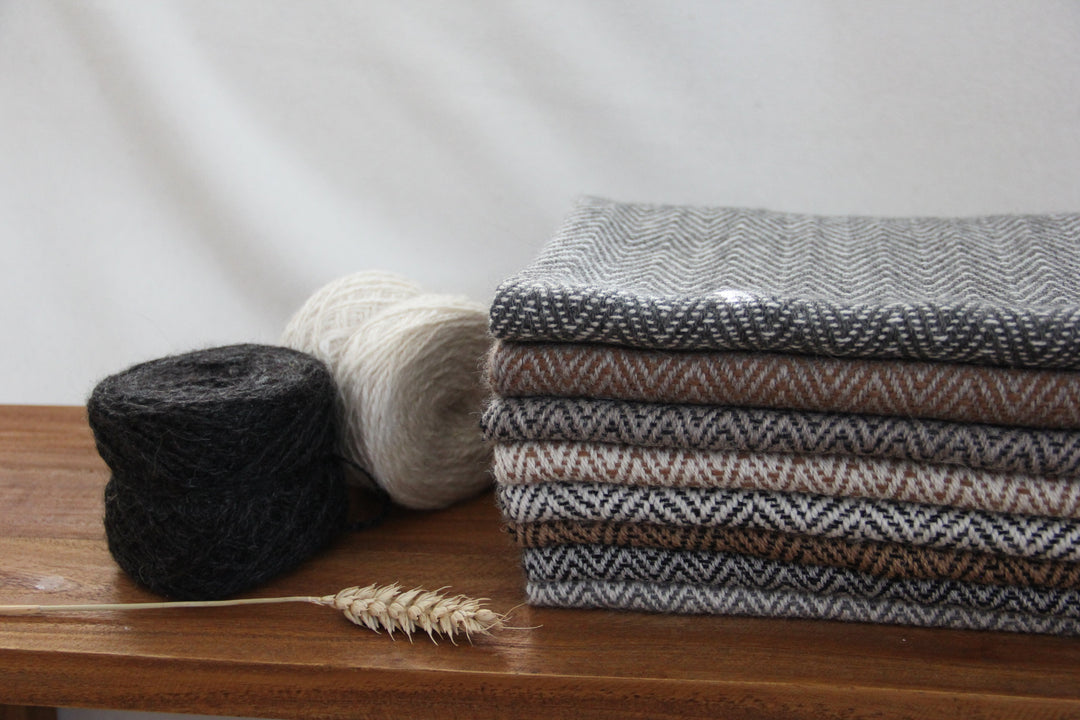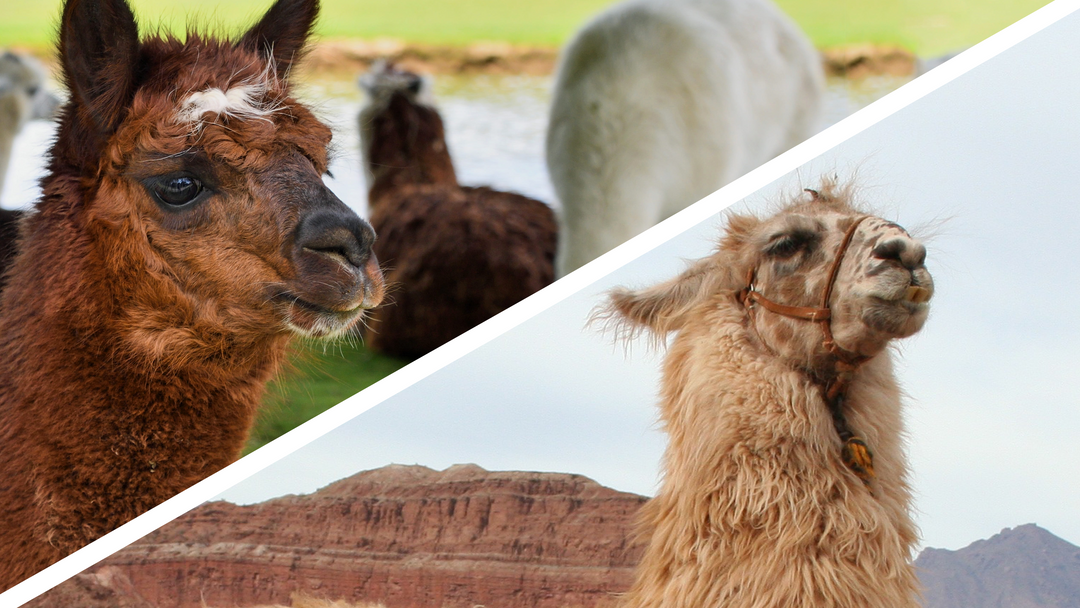Alpaca wool and sheep's wool are often compared with each other and are very popular in the fashion and textile industry due to their numerous positive properties. In this article, we will make a detailed comparison between the two types of wool and emphasise the benefits of alpaca wool.
Wool products have long been an important part of clothing and home furnishings, and their popularity continues to rise. Finding high quality wool is therefore an important consideration for consumers seeking quality and performance.
We will focus in this article on the origins and production, characteristics and properties, uses and applications, and sustainability and ethics of alpaca wool and sheep wool. If you are interested in high quality wool, you will certainly appreciate this information. However, if you are looking for more information on alpaca products, please visit our Alpaca Products blog: Everything You Need to Know.
Origin and production
Alpacas and sheep have different origins and are native to different continents. Alpacas originate from South America, while sheep are widespread in Europe, Asia and Africa.
Alpaca wool is obtained from the fleece of alpacas, an animal native to the Andes of Peru, Chile and Bolivia. Alpaca fibres are naturally soft and silky and have a fine diameter that makes them particularly luxurious. Learn more about the history of alpaca wool.
Sheep's wool is produced by sheep all over the world. Sheep wool is usually coarser than alpaca wool, but there are many different types of sheep that produce different qualities of fibre.
Although both types of wool have their merits, alpaca wool is often more expensive and exclusive than sheep's wool due to its origin, quality and elaborate production. If you are looking for a luxurious and high-quality wool alternative, alpaca wool is the perfect choice.
Characteristics and properties

Alpaca and sheep's wool are two of the most popular types of wool used in the textile and fashion industry. While sheep's wool has been known in Europe for centuries, alpaca wool has gained popularity in recent years. In this article we would like to explore the differences between alpaca and sheep wool and find out what makes alpaca wool so special.
One of the most striking differences between alpaca and sheep wool lies in their physical properties. Alpaca wool is known for its hypoallergenic qualities, which makes it ideal for people with sensitive skin. In contrast, sheep's wool can cause itching and skin irritation in some people.
Alpaca wool also has a unique texture that distinguishes it from sheep's wool. The fibre diameters of alpaca wool are on average thinner than those of sheep's wool, resulting in garments made from alpaca wool being softer and silkier than those made from sheep's wool. These finer fibres also allow for better thermal regulation, making alpaca wool ideal for garments that can be worn in different climates.
Another advantage of alpaca wool is its high longevity and durability. Unlike sheep's wool, alpaca wool is not prone to pilling or matting, which means that garments made from alpaca wool last longer and require less repair or replacement.
To learn more about the properties of alpaca wool, visit our blog unique Properties of Alpaca Wool.
Use and applications
The use of alpaca wool compared to sheep wool differs in many ways. An important factor influencing the use of alpaca wool is its exclusivity and the associated higher price compared to sheep's wool. Alpaca wool is obtained from the fibres of alpacas, which are mostly bred in certain regions of South America. The limited availability of the animals and the complex production of the wool contribute to the fact that alpaca wool is a sought-after and expensive material.
Another factor in favour of using alpaca wool is its superior quality compared to sheep's wool. Alpaca wool is known for its warmth, which is achieved due to the fineness of the fibres. In comparison, sheep's wool tends to have a coarser texture, resulting in less thermal protection. Alpaca wool is also lighter than sheep's wool, which makes it an ideal material for garments that should not be too heavy.
It is important to note that while alpaca wool has better properties than sheep's wool, the latter is still an excellent choice for more everyday situations or garments that are more heavily used, such as work or outdoor clothing. Furthermore, sheep's wool is a sustainable and natural option that outperforms all synthetic alternatives in terms of durability and strength. Therefore, although alpaca wool is a more exclusive and expensive option, sheep's wool is an excellent choice in many situations.
Sustainability and ethics
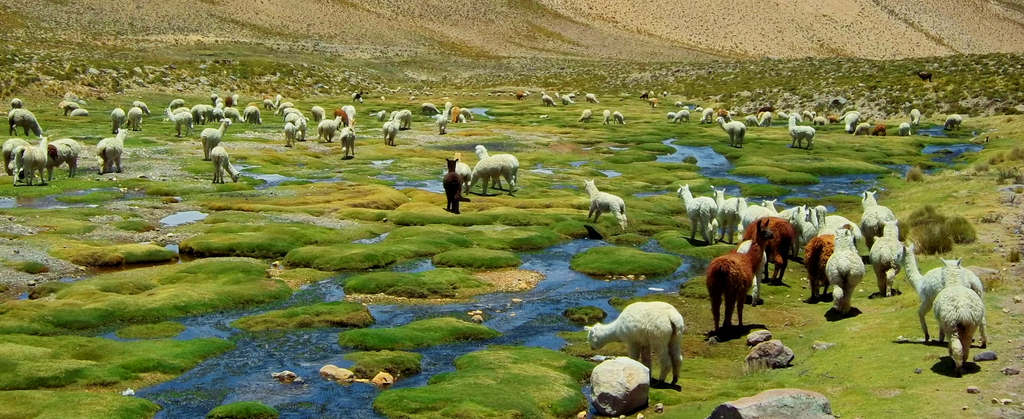
Sustainability and ethics are important factors to consider when deciding to buy wool. Alpaca wool is an excellent choice in this context. Compared to sheep wool, alpaca wool has a much lower impact on the environment. Alpacas produce less greenhouse gases and require less water and feed compared to sheep.
Due to the size of the sheep wool industry, it is difficult to know under what conditions the animals are kept. Nevertheless, sheep have long been domesticated animals and have developed a strong tolerance to human contact. In contrast, alpacas are relatively new domestic animals and may be more sensitive to stress from human contact. Nevertheless, all animal husbandry practices should aim to ensure the welfare of the animals and that they live in good conditions.
At Andes Alpaca, we place great importance on animal welfare and want to ensure that all our materials come from ethical sources. For this reason, we only work with alpaca wool that comes from free-roaming alpacas. This means that the animals live in their natural environment and are not kept in unnatural or stressful conditions.
We pride ourselves on offering our customers high quality products that meet ethical standards. So if you're looking for a sustainable and ethical alternative to sheep's wool, choose alpaca wool. Not only will you get a better product, but you will also be helping to protect the environment and support animal welfare.
Conclusion
Although both types of wool have their advantages and disadvantages, alpaca wool has an advantage due to its softness, warmth and moisture-regulating properties. However, consumers should always consider their personal preferences and values when choosing between alpaca wool and sheep wool. We recommend buying products from companies that are committed to sustainability and ethics.





